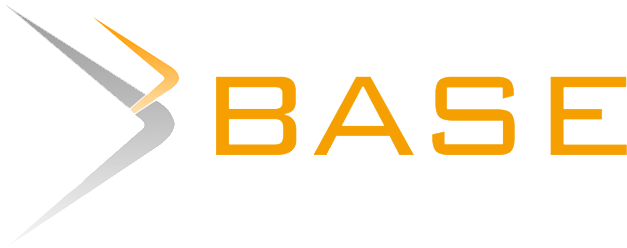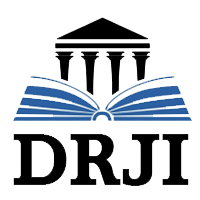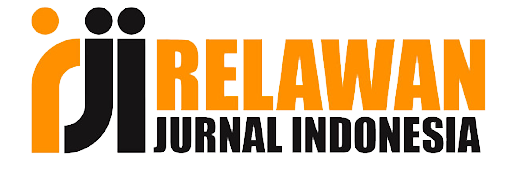Personal Growth Initiative sebagai Prediktor terhadap Prokrastinasi Akademik pada Mahasiswa
Abstract
Students are the generation who can be said to be national assets because students are an educated group of people who are expected to be able to face various changes and existing problems. However, the facts show that various obstacles can be experienced by students when studying at university which can trigger student delays in completing their education or not graduating on time which will lead to academic procrastination. One of the factors that influence the level of academic procrastination in students is personal growth initiative. This is because personal growth initiative are closely related to efforts to develop someone in a positive direction by deliberately optimizing someone's potential to change to become a better person. Therefore, this study aims to test whether personal growth initiatives have a role so that they can be used as a solution to overcome the problems of academic procrastination experienced by students. The subjects of this were 334 male and female students who experienced academic procrastination. The measuring tool for both variables uses a Likert scale. The sampling technique used purposive sampling. The results of this study indicate that there is a negative influence between the personal growth initiative variable (x) and the academic procrastination variable (y) with the simple linear regression equation Y = 56,548 + (- 0,283)*X.
Berbagai kendala bisa saja dialami oleh mahasiswa ketika menempuh pendidikan di perguruan tinggi, yang akhirnya menjadi pemicu keterlambatan penyelesaian pendidikan mahasiswa, salah satu faktor penyebabnya adalah prokrastinasi akademik yaitu menunda-nunda pekerjaan. Demikian juga prokrastinasi akademik dapat dipengaruhi oleh personal growth initiative yang berkaitan erat dengan usaha-usaha untuk mengembangkan diri ke arah yang positif dengan mengoptimalkan potensi dirinya secara sengaja untuk terus berubah menjadi pribadi yang lebih baik. Oleh karenanya, penelitian ini bertujuan untuk menguji apakah personal growth initiative memiliki peran sehingga dapat dijadikan sebagai solusi untuk mengatasi permasalahan prokrastinasi akademik yang dialami oleh mahasiswa. Teknik pengambilan sampel dengan purposive sampling, maka sebanyak 334 mahasiswa yang teridentifikasi mengalami prokrastinasi akademik terlibat dalam penelitian ini. Instrumen yang digunakan adalah skala personal growth initiative dan skala prokrastinasi akademik. Analisis data menggunakan Jamovi. Hasilnya menunjukkan bahwa terdapat pengaruh negatif antara variabel personal growth initiative (x) dengan variabel prokrastinasi akademik (y) dengan persamaan regresi linier sederhana Y = 56.548 + (- 0.283)*X.
Keywords
Full Text:
PDFReferences
Beri, N., & Jain, M. (2016). Personal growth initiative among undergraduate students: Influence of emotional self efficacy and general well being. Rupkatha Journal on Interdisciplinary Studies in Humanities, 8(2), 43–56.
Bhattacharya, A., & Mehrotra, S. (2013). The journey of personal growth: A qualitative exploration of personal growth processes in young adulthood. Psychological Studies, 58, 456–463.
Borowa, D., Kossakowska, M. M., Harmon, K. A., & Robitschek, C. (2020). Personal growth initiative’s relation to life meaning and satisfaction in a polish sample. Current Psychology, 39, 1648–1660.
Burka, J. B., & Yuen, L. M. (2008). Procrastination: Why you do it, what to do about it now Da Capo Press.
Cahyono, H. (2019). Peran mahasiswa di masyarakat. De Banten-Bode: Jurnal Pengabdian Kepada Masyarakat (PKM) Setiabudhi, 1(1), 32–41.
Cai, J., & Lian, R. (2022). Social support and a sense of purpose: The role of personal growth initiative and academic self-efficacy. Frontiers in Psychology, 12, 788841.
Chang, E. C., & Yang, H. (2016). Personal and family growth initiative as predictors of study engagement in Chinese and American college students: Is there any evidence for group differences? Personality and Individual Differences, 102, 186-189
Chun Chu, A. H., & Choi, J. N. (2005). Rethinking procrastination: Positive effects of" active" procrastination behavior on attitudes and performance. The Journal of social psychology, 145(3), 245-264.
Dewitte, S., & Schouwenburg, H. C. (2002). Procrastination, temptations, and incentives: The struggle between the present and the future in procrastinators and the punctual. European Journal of Personality, 16(6), 469–489.
Dharmawan, N. S. (2014). Implementasi pendidikan karakter bangsa pada mahasiswa di perguruan tinggi. Jurnal Kalacakra Ilmu, Sosial dan Pendidikan, 4(2), 50-64.
Ferrari, J. R., Johnson, J. L., & McCown, W. G. (1995). Procrastination and task avoidance: Theory, research, and treatment. Plenum Press.
Hafizah, N., Adriansyah, M. A., & Permatasari, R. F. (2021). Kontrol Diri dan Komunikasi Interpersonal Terhadap Perilaku Phubbing. Psikoborneo: Jurnal Ilmiah Psikologi, 9(3), 630–645.
Haggins, S. E. (2005). Individual differences in decision-making styles: An examination of personal growth initiative and coping in college students [Disertasi, University of West Florida]. https://getd.libs.uga.edu/pdfs/haggins_sherry_e_200508_phd.pdf
Lee, D.-G. (2003). A cluster analysis of procrastination and coping. Cognicitve Behaviour Therapy, 44(6).
Linra, M. L. (2016, December 2). Hubungan antara task aversiveness dengan prokrastinasi akademik. Research Gate. https://www.researchgate.net/publication/320080423_Hubungan_antara_task_aversiveness_dengan_prokrastinasi_akademik
Lodha, P., Sharma, A., Dsouza, G., Marathe, I., Dsouza, S., Rawal, S., Pandya, V., & Sousa, A.E. (2019). General Procrastination Scale: Development of Validity and Reliability. International Journal of Medicine and Public Health, 9(3).
Malik, N. I., Yasin, G., & Shahzadi, H. (2013). Personal growth initiative and self esteem as predictors of academic achievement among students of technical training institutes. Pakistan Journal of Social Sciences, 33(2), 435–446.
Maulidya, F., & Adelina, M. (2018, January 9). Periodesasi perkembangan dewasa [Skripsi, Universitas Muhammadiyah Sidoarjo]. Repository Universitas Muhammadiyah Sidoarjo. http://eprints.umsida.ac.id/1271/
Meyers, M. C., van Woerkom, M., de Reuver, R. S. M., Bakk, Z., & Oberski, D. L. (2015). Enhancing psychological capital and personal growth initiative: Working on strengths or deficiencies. Journal of Counseling Psychology, 62(1), 50.
Nicholson, L., & Scharff, L. F. V. (2007). The effects of procrastination and self-awareness on emotional responses. Psi Chi Journal of Undergraduate Research, 12(4), 139-145.
Putri, A. F. (2019). Pentingnya orang dewasa awal menyelesaikan tugas perkembangannya. SCHOULID: Indonesian Journal of School Counseling, 3(2), 35–40.
Pychyl, T. A., Morin, R. W., & Salmon, B. R. (2000). Procrastination and the planning fallacy: An examination of the study habits of university students. Journal of Social Behavior and Personality, 15(5), 135.
Rahim, A., Putra, F., & Solina, W. (2022). Ketercapaian tugas perkembangan mahasiswa pada masa dewasa awal di Universitas PGRI Sumatera Barat (Studi pada mahasiswa bimbingan dan konseling angkatan 2018). Jurnal Wahana Konseling, 5(1), 70-79.
Robitschek, C. (1998). Personal growth initiative: The construct and its measure. Measurement and Evaluation in Counseling and Development, 30(4), 183–198.
Robitschek, C., Ashton, M. W., Spering, C. C., Geiger, N., Byers, D., Schotts, G. C., & Thoen, M. A. (2012). Development and psychometric evaluation of the Personal Growth Initiative Scale–II. Journal of Counseling Psychology, 59(2), 274.
Robitschek, C., & Cook, S. W. (1999). The influence of personal growth initiative and coping styles on career exploration and vocational identity. Journal of Vocational Behavior, 54(1), 127–141.
Rumiani. (2006). Prokrastinasi akademik ditinjau dari motivasi berprestasi dan stres mahasiswa. Jurnal Psikologi Universitas Diponegoro, 3(2).
Saleh, U., Kusuma, R. D., & Arifin, M. (2022). Being compassionate in early adulthood. Interdisciplinary Conference of Psychology, Health, and Social Science (ICPHS 2021), 11–17.
Salim, I. R., & Yuliawati, L. (2021). Growing and getting good grades? Interplay personal growth initiative, extrinsic motivation, and academic procrastination. Jurnal Psibernetika, 14(2), 68-82. https://doi.org/ 10.30813/psibernetika.v14i2.2873
Santrock, J. W., Mondloch, C. J., & Mackenzie-Thompson, A. (2014). Essentials of life-span development (7th ed.). McGraw-Hill.
Saraswati, P. (2018). Buku Manual Personal Growth Inisiative Scale In Academic. Hak Cipta Kementrian Hukum dan HAM: Univeristas Muhammadiyah Malang, No.pencatatan 000195338.
Saraswati, P. (2019). Goal achievement as a predictor of personal growth initiative for generation z. 4th ASEAN Conference on Psychology, Counselling, and Humanities (ACPCH), 330–334.
Saraswati, P., & Winarsunu, T. (2022). Personal Growth Initiative Profile on Non-Suicidal Self-Injury (NSSI). Proceeding of Biopsychosocial Issues The 2nd International Conference on Biopsychosocial Issue.
Savira, F., & Suharsono, Y. (2013). Self-regulated learning (SRL) dengan prokrastnasi akademik pada siswa akselerasi. Jurnal Ilmiah Psikologi Terapan, 1(1), 66–75.
Schraw, G., Wadkins, T., & Olafson, L. (2007). Doing the things we do: A grounded theory of academic procrastination. Journal of Educational Psychology, 99(1), 12.
Sharma, M. P. (1997). Task procrastination and its determinants. Indian Journal of Industrial Relations, 17–33.
Shorey, H. S., Little, T. D., Snyder, C. R., Kluck, B., & Robitschek, C. (2007). Hope and personal growth initiative: A comparison of positive, future-oriented constructs. Personality and Individual Differences, 43(7), 1917–1926.
Smadi, A. A., & Abu-Afouna, N. H. (2012). On least squares estimation in a simple linear regression model with periodically correlated errors: A cautionary note. Austrian Journal of Statistics, 41(3), 211-226.
Simbolon, P., & Simbolon, N. (2021). Hubungan academic burnout dengan prokrastinasi akademik pada mahasiswa Stikes Santa Elisabeth Medan. Jurnal Pendidikan, 12(2), 96-107.
Solomon, L. J., & Rothblum, E. D. (1984). Academic procrastination: Frequency and cognitive-behavioral correlates. Journal of Counseling Psychology, 31(4), 503-509. https://psycnet.apa.org/doi/10.1037/0022-0167.31.4.503
Steel, P. (2003). The history, definition, and measurement of procrastination. Meeting of the Counselling the Procrastinator in Academic Settings.
Steel, P. (2007). The nature of procrastination: a meta-analytic and theoretical review of quintessential self-regulatory failure. Psychological Bulletin, 133(1), 65-94. https://doi.org/10.1037/0033-2909.133.1.65
Sugiyono. (2019). Metode penelitian kuantitatif kualitatif dan r&d. Alfabeta, CV.
Surijah, E. A., & Sia, T. (2007). Mahasiswa versus tugas: Prokrastinasi akademik dan conscientiousness. Anima Indonesian Psychological Journal, 22(4), 352–374.
Thakkar, N. (2009). Why procrastinate: An investigation of the root causes behind procrastination. Lethbridge Undergraduate Research Journal, 4(2).
Thong, V. (2018, May 16). From risk to resilience: Examining resilience and personal growth initiative in first-generation college students [Disertasi, Universitas Texas]. TCU Digital respository. https://repository.tcu.edu/handle/116099117/21864
Tuckman, B. (1990). Measuring Procrastination Attitudinally and Behaviorally. Procrastination Scale. US. American Educational Research Association, 51, 473-480.
Tuckman, B. W. (2003). A performance comparison of motivational self-believers and self-doubters in competitive and individualistic goal situations. Personality and Individual Differences, 34(5), 845–854.
Wolters, C. A. (2003). Understanding procrastination from a self-regulated learning perspective. Journal of Educational Psychology, 95(1), 179.
You, J. W. (2015). Examining the effect of academic procrastination on achievement using LMS data in e-learning. Journal of Educational Technology & Society, 18(3), 64–74.
DOI: https://doi.org/10.24176/perseptual.v8i2.10367
Refbacks
- There are currently no refbacks.

Jurnal Psikologi Perseptual (eISSN 2580-9520) is licensed under a Creative Commons Attribution-ShareAlike 4.0 International License














